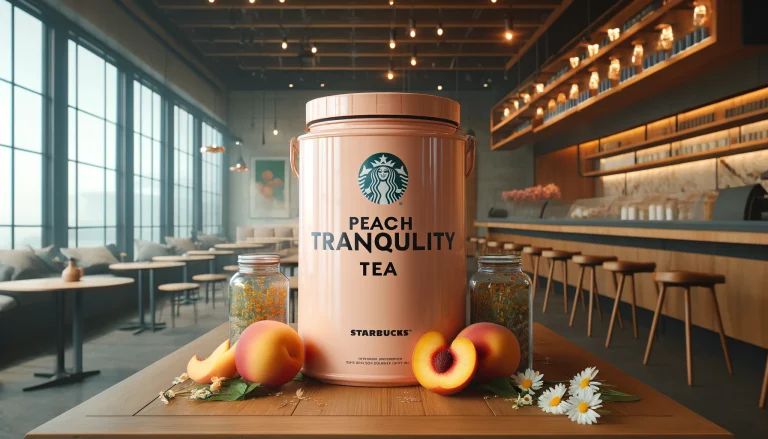Creative Ways to Sweeten Green Tea Without Sugar

Welcome to the sweet side of green tea, where we show you how to enjoy your favorite brew without sugar but with plenty of flavor and sweetness. In this guide, we’ll dive into the best ways to add that sweet touch naturally, from flavoring green tea with delicious add-ins to exploring various sugar alternatives that keep your tea healthy and tasty. Whether you’re a honey lover, curious about the benefits of organic honey in your tea, or looking to experiment with Stevia, organic maple syrup, or even coconut water, we’ve got you covered.
Explore the ways and golden rules for sweetening green tea without sugar and discover the best food pairings to sweeten your tea experience naturally.
Honey
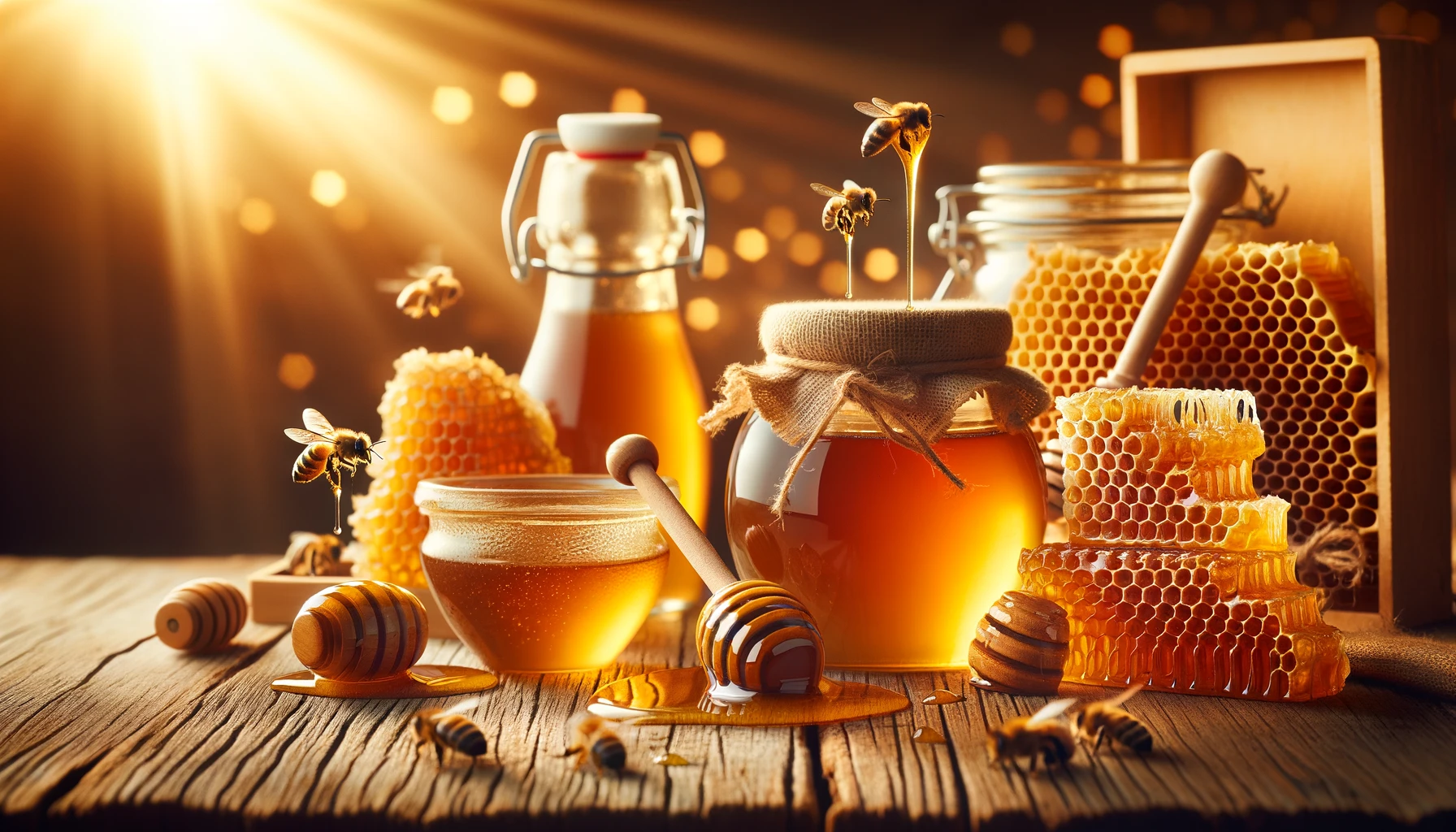
Honey is a natural product made by bees using nectar from flowers. One of the most harmonious answers to what to add to green tea is honey. Honey is a sweet natural product that has been loved for a long time, not only because it tastes good but also because it’s good for your health. A tablespoon of honey typically contains about 64 calories, higher than the same amount of sugar.
Organic Honey Benefits
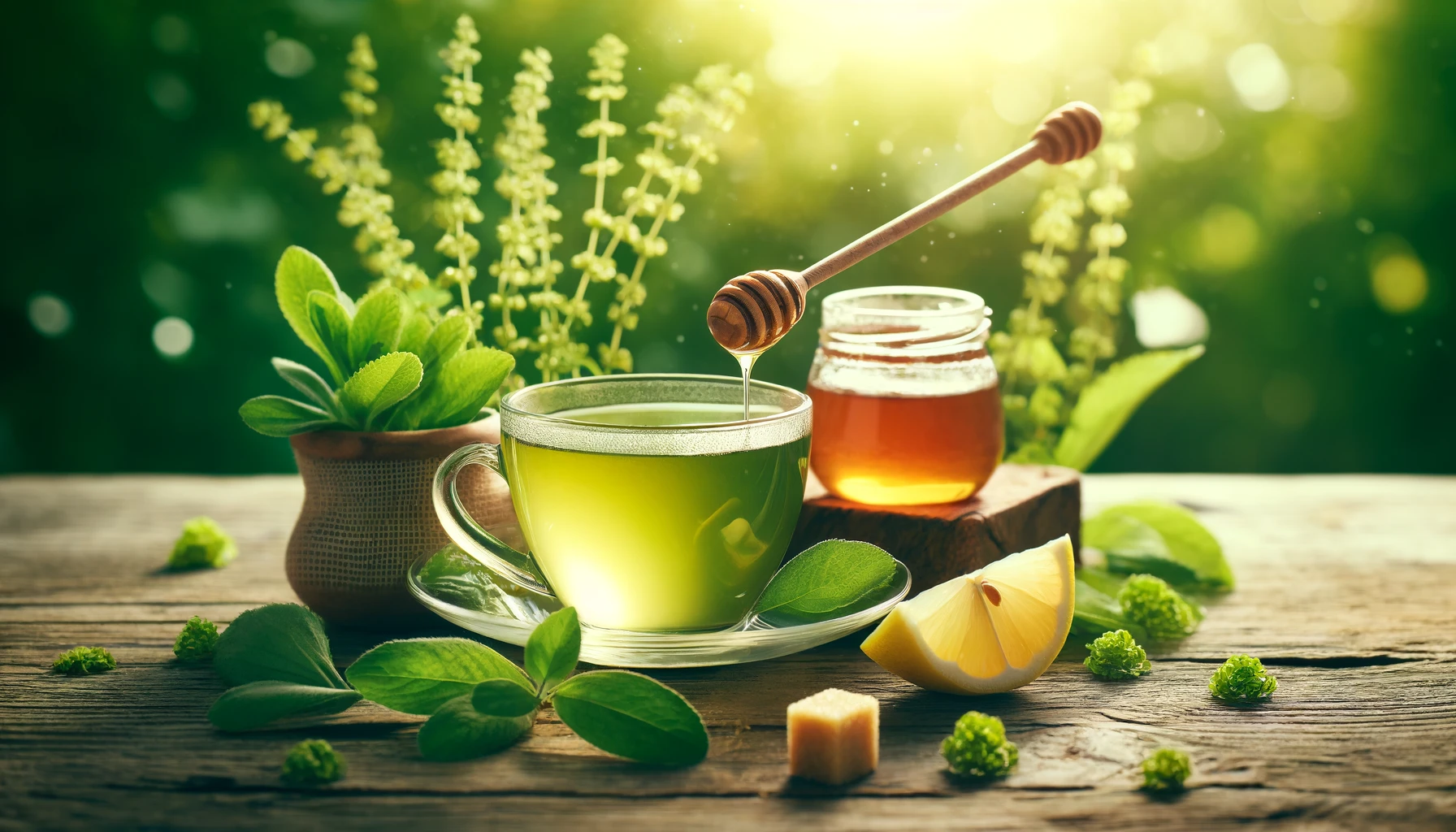
Organic honey comes from bees that pollinate organic flowers, meaning it’s produced without pesticides or harmful chemicals. It’s full of good stuff like antioxidants, enzymes, and vitamins. It’s great at fighting harmful things in our bodies and is a healthier sweetener than regular sugar.
How To Get the Most of Organic Honey Benefits
To truly benefit from organic honey, adding it to your tea at the right temperature is essential. Pouring honey into slightly cooled tea ensures the heat doesn’t destroy its beneficial enzymes. This way, you get to enjoy both the health benefits and the full, undiluted flavor of the honey.
When it comes to sweetening your tea naturally, organic honey is a standout choice. It enhances the taste of your green tea and does so in a way that’s beneficial for your health. Exploring natural sweeteners like honey can transform your tea drinking experience.
Stevia
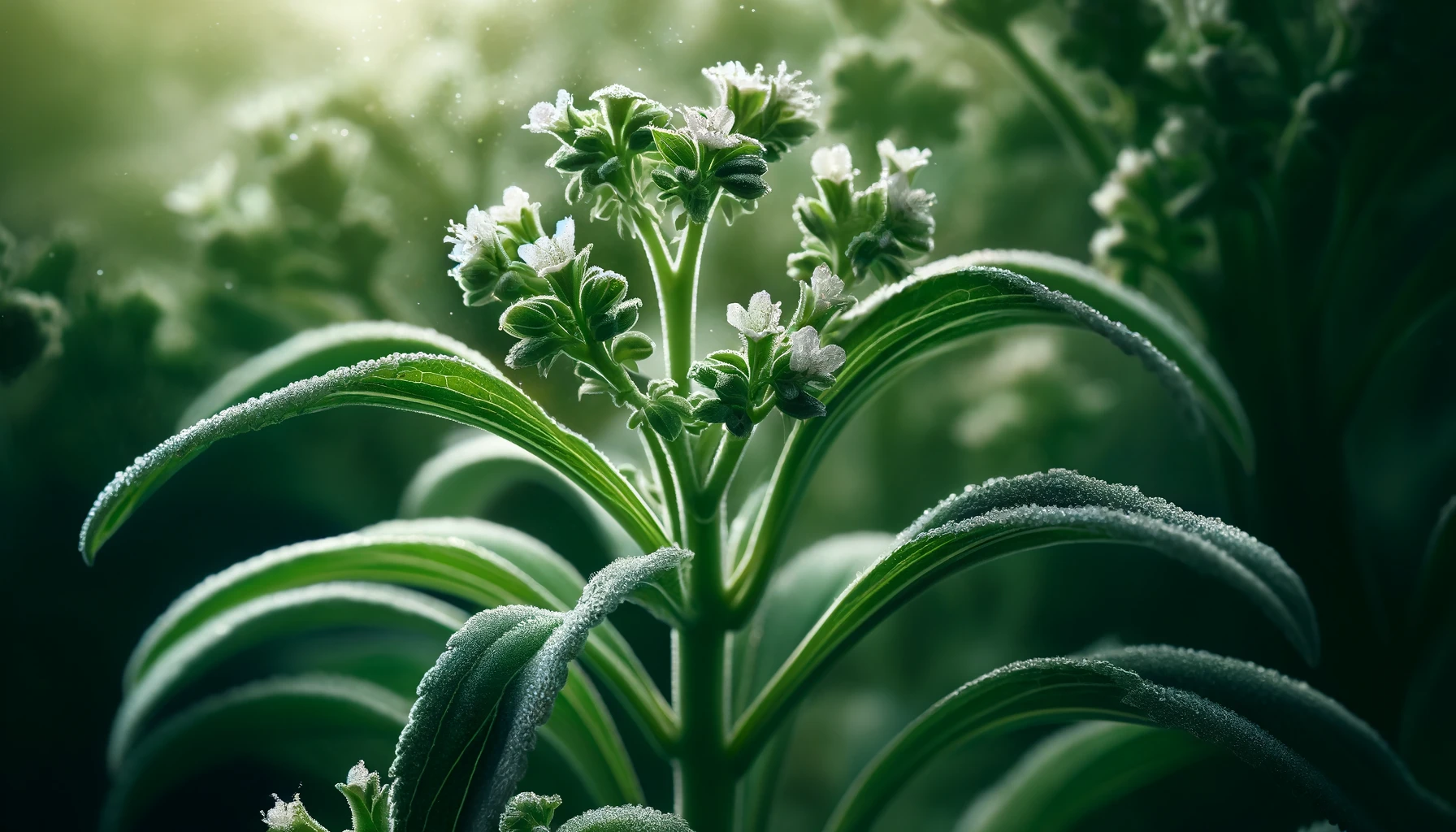
Stevia is a great pick among healthy sweeteners, offering a zero-calorie, natural alternative to sugar. It comes from the leaves of the Stevia rebaudiana plant; this sweetener has gained popularity for its ability to provide a high level of sweetness without the negative health impacts of refined sugar. Stevia presents an excellent solution for those exploring green tea add-ins that maintain the beverage’s healthful integrity. Additionally, the antioxidants found in Lipton green tea offer numerous benefits for skin health, such as reducing inflammation and promoting collagen production.”
Unlike artificial sweeteners, Stevia is derived from a natural source, making it a preferred choice for individuals seeking organic and natural dietary options.
Stevia Medicinal Properties
Beyond its sweetening capabilities, Stevia is renowned for its medicinal properties, which have been recognized in various cultures for centuries. Research has highlighted several health benefits associated with Stevia consumption:
Organic Maple Syrup

Organic maple syrup is a wonderful green tea sweetener, offering a unique flavor profile to make your tea drinking experience more enjoyable. Unlike refined sugar, maple syrup contains beneficial antioxidants and minerals like zinc and manganese, contributing to a healthier sweetening option. Its rich, earthy taste pairs beautifully with green tea, adding a hint of natural sweetness without overwhelming the tea’s subtle flavors.
Coconut Water

Coconut water is also a good choice for sweetening green tea. It’s sweet, low in calories, and full of good things like electrolytes and vitamins. When you mix it with green tea, you get a drink that’s tasty, refreshing, and good for you, especially after exercise or on a hot day.
Blackstrap Molasses
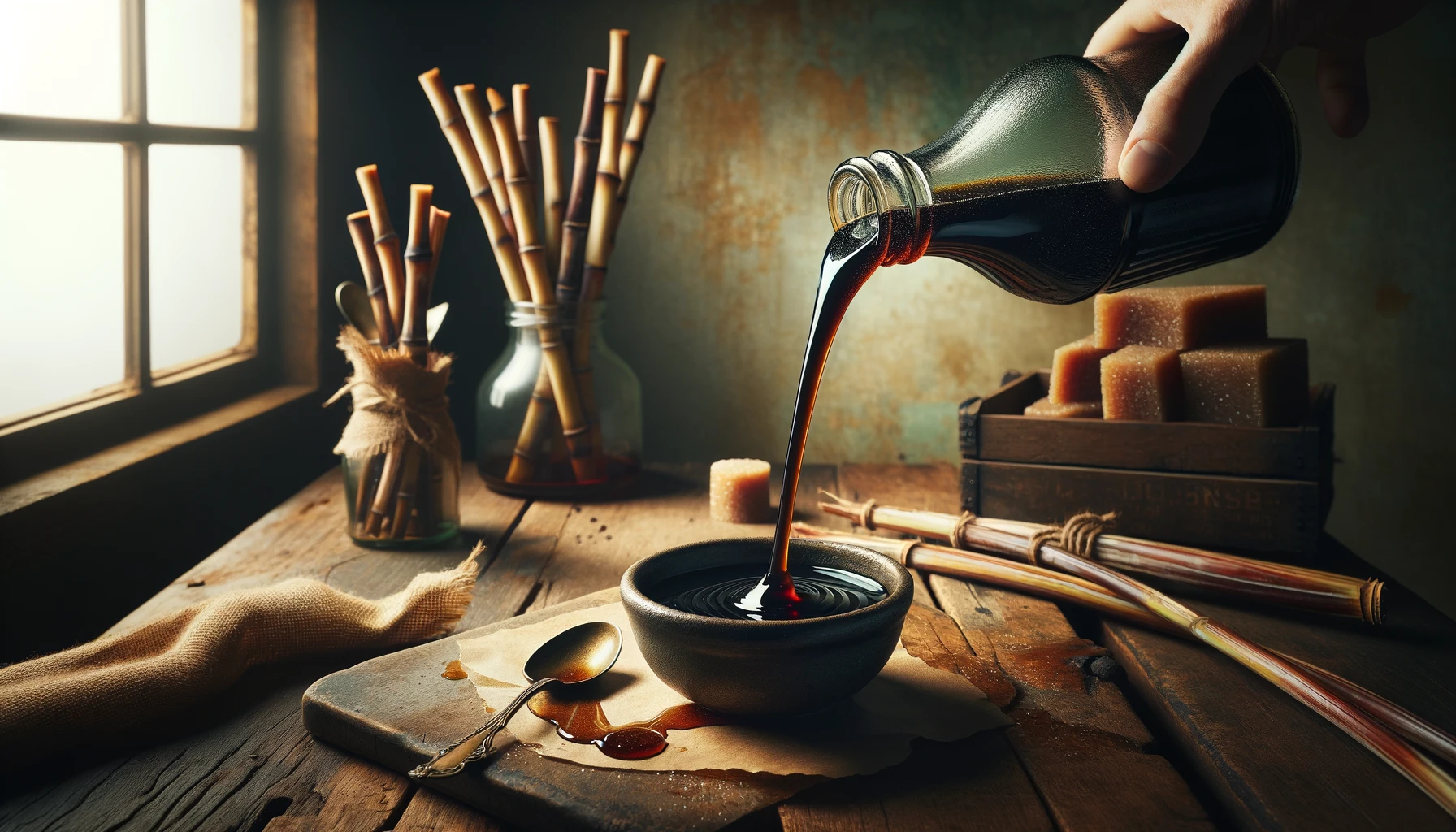
Blackstrap molasses is a thick, dark syrup left over from making sugar. It’s packed with important nutrients like iron, calcium, magnesium, and potassium, making it a really healthy way to sweeten your green tea. Its strong taste adds a nice, warm sweetness to your tea. You only need a bit to taste it, so start with a teaspoon and see how it goes.
Rock Sugar
Rock sugar, also known as rock candy, is crystallized sugar that offers a clean, pure sweetness with a slow dissolve rate, allowing you to control the sweetness of your tea as you sip. While it’s still sugar, its larger crystals can encourage moderation, and its subtle sweetness doesn’t mask the delicate flavors of green tea.
Almond or Soy Milk
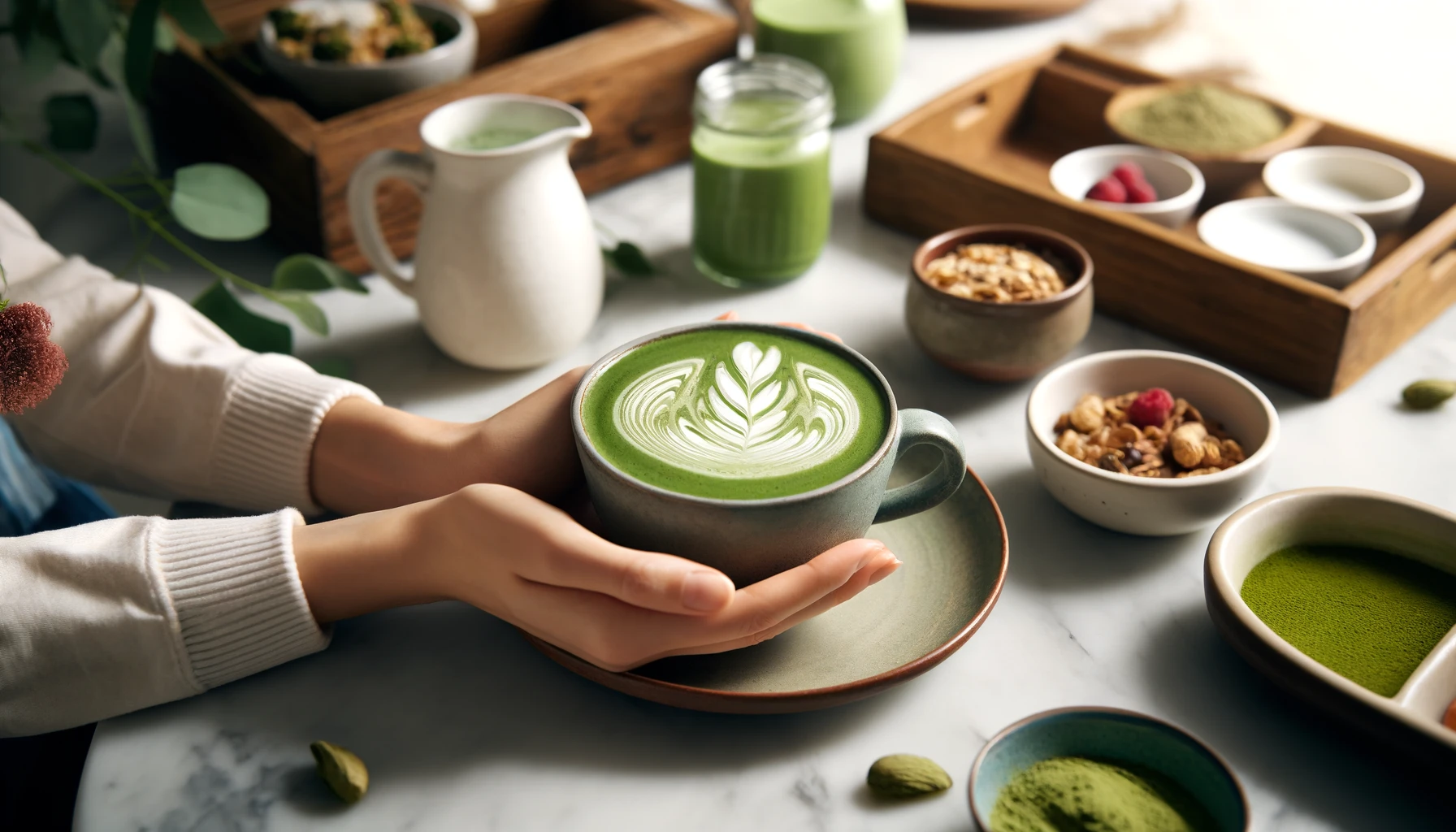
If you like your tea creamy, try adding almond or soy milk. These plant-based milks can make your green tea creamier and a bit sweeter. Almond milk adds a light nutty flavor, and soy milk is smooth, both making your green tea even nicer without too much sugar.
CONDENSED MILK
Condensed milk is a popular sweetener in various tea cultures, especially in parts of Asia where sweet, milky tea is a staple. It gives green tea a rich, creamy sweetness, transforming it into a decadent treat. While it’s higher in sugar and calories than other options on this list, a small amount can add a luxurious depth to your green tea, making it a special indulgence.
Mix Fruit Teas
Mix fruit teas are a tasty way to naturally sweeten green tea. They’re made from dried fruit skins like berries, peaches, and citrus. These teas add a bit of sweetness and fruitiness to green tea, making it even yummier. Plus, they bring in extra antioxidants and vitamins making your green tea super healthy.
Mint or lemon juice
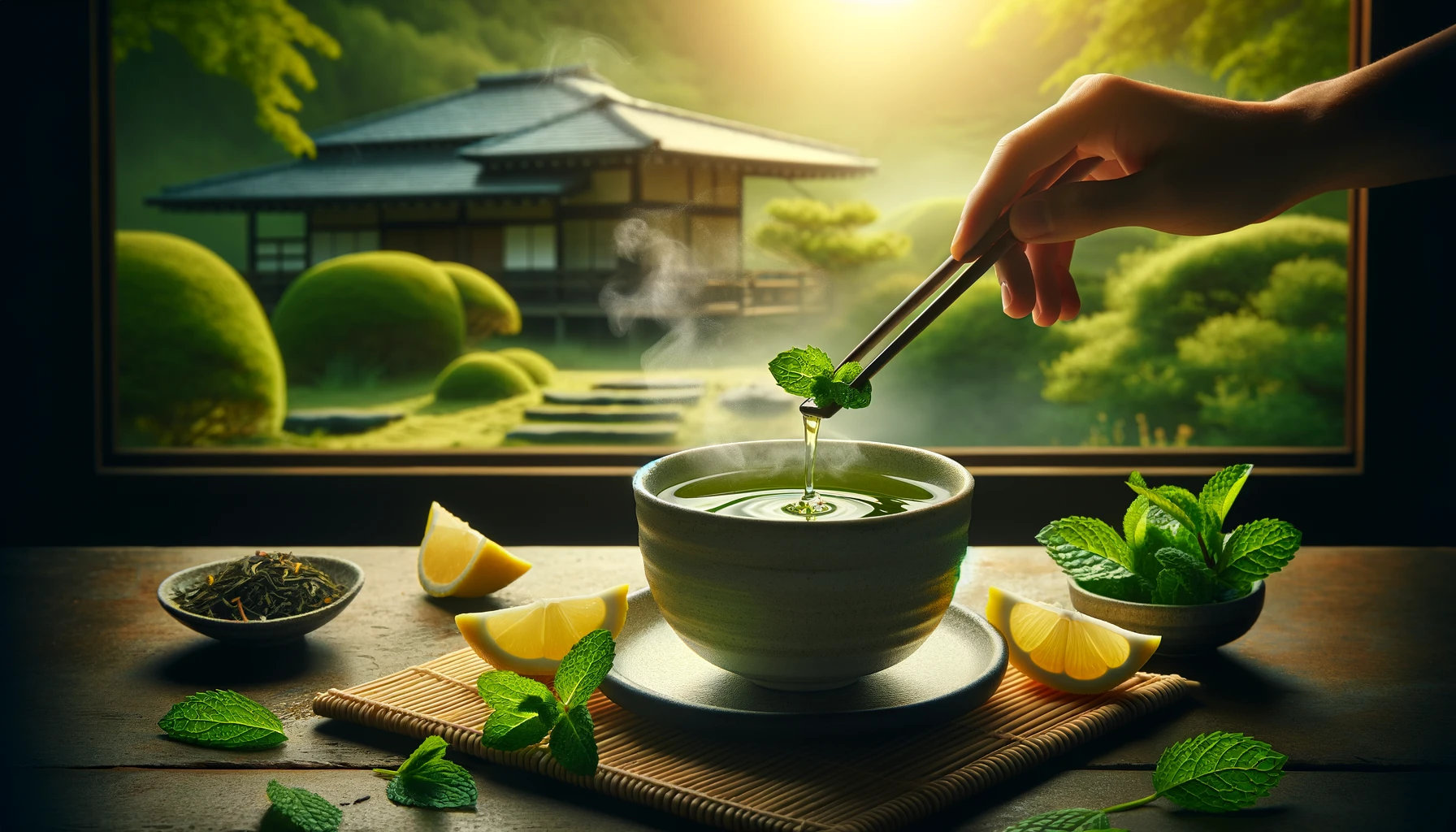
Adding mint or lemon juice to green tea is a refreshing way to enhance its flavor without adding calories. Mint adds a cool, refreshing twist, while lemon juice provides a tangy zest, enriching the green tea’s natural flavors.
Agave Nectar
Agave nectar is a popular natural sweetener derived from the agave plant. It’s sweeter than honey and has a smoother consistency, making it an excellent vegan alternative for sweetening green tea. Its low glycemic index means it doesn’t spike blood sugar levels as rapidly as regular sugar, making it a healthier choice for adding sweetness to your tea.
Add fruits

Adding fresh fruits to green tea is another innovative way to sweeten it naturally. Slices of apple, pear, or berries can be steeped in the tea, releasing their natural sugars and flavors into the beverage.
Sugar Alcohols
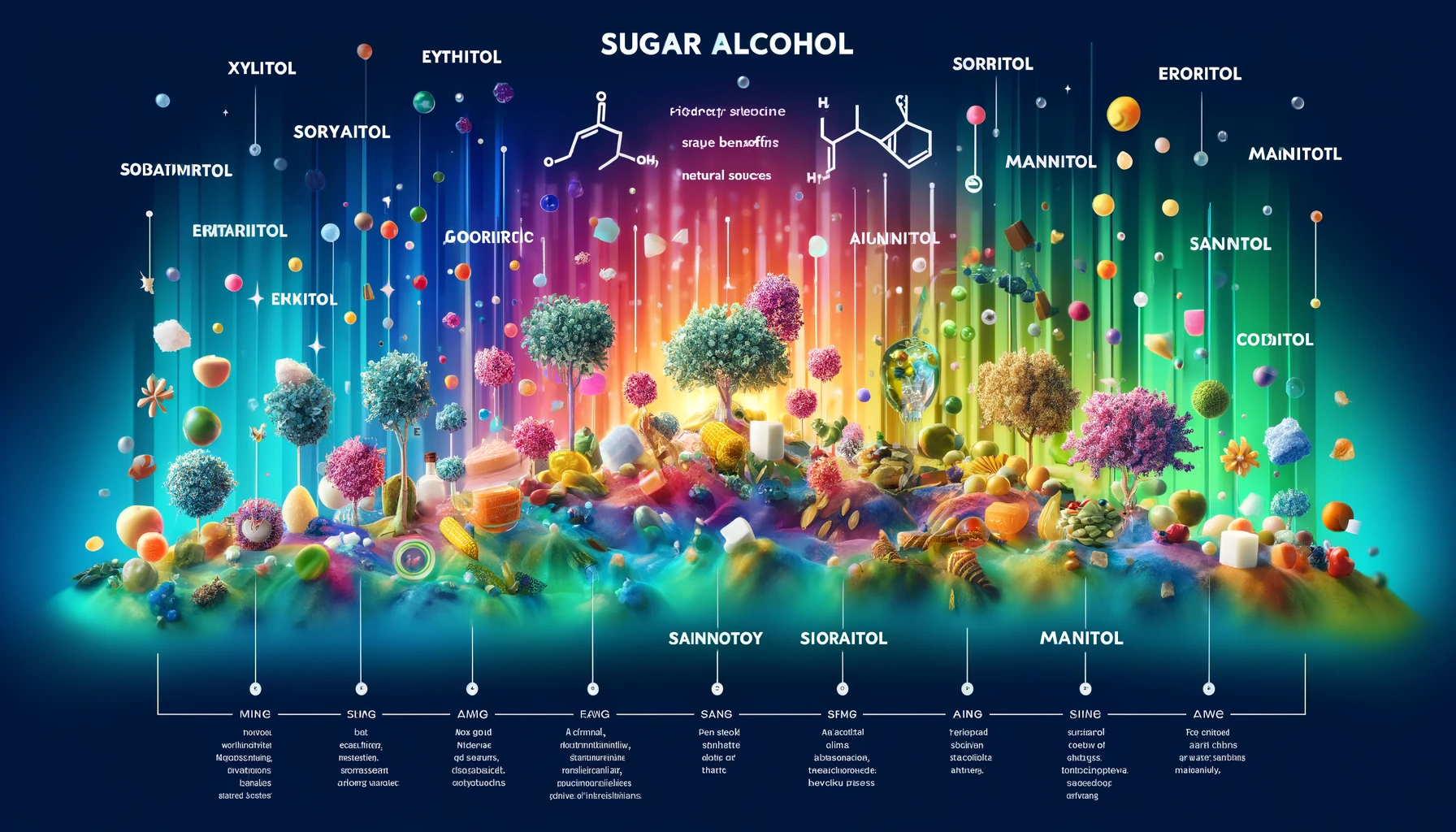
Sugar alcohols like xylitol, erythritol, and molasses are lower-calorie alternatives to regular sugar, making them popular with people who are watching their sugar intake.
XYLITOL
Xylitol is a sugar alcohol with a sweetness similar to sugar but with 40% fewer calories. It benefits dental health and doesn’t raise blood sugar levels too much.
ERYTHRITOL
Erythritol is another sugar alcohol that’s about 70-80% as sweet as sugar but virtually calorie-free. It doesn’t raise blood sugar levels, making it a safe choice for people with diabetes and those looking to reduce their sugar intake.
MOLASSES
Molasses, especially blackstrap molasses, are rich in vitamins and minerals like iron, calcium, and magnesium. It adds a deep, rich sweetness to green tea and provides a nutritional boost.
MONK FRUIT
MONK FRUIT is a small melon native to Southeast Asia. It’s a zero-calorie sweetener that is much sweeter than sugar, meaning you only need a tiny amount to sweeten your green tea.
Dates Sugar
Dates sugar, made from dried and ground dates, offers a nutritious way to sweeten green tea. While it doesn’t dissolve in tea like other sweeteners, it adds a rich, caramel-like sweetness and boosts fiber and nutrients, including potassium and magnesium.
Reasons to Drink Tea Without Sugar
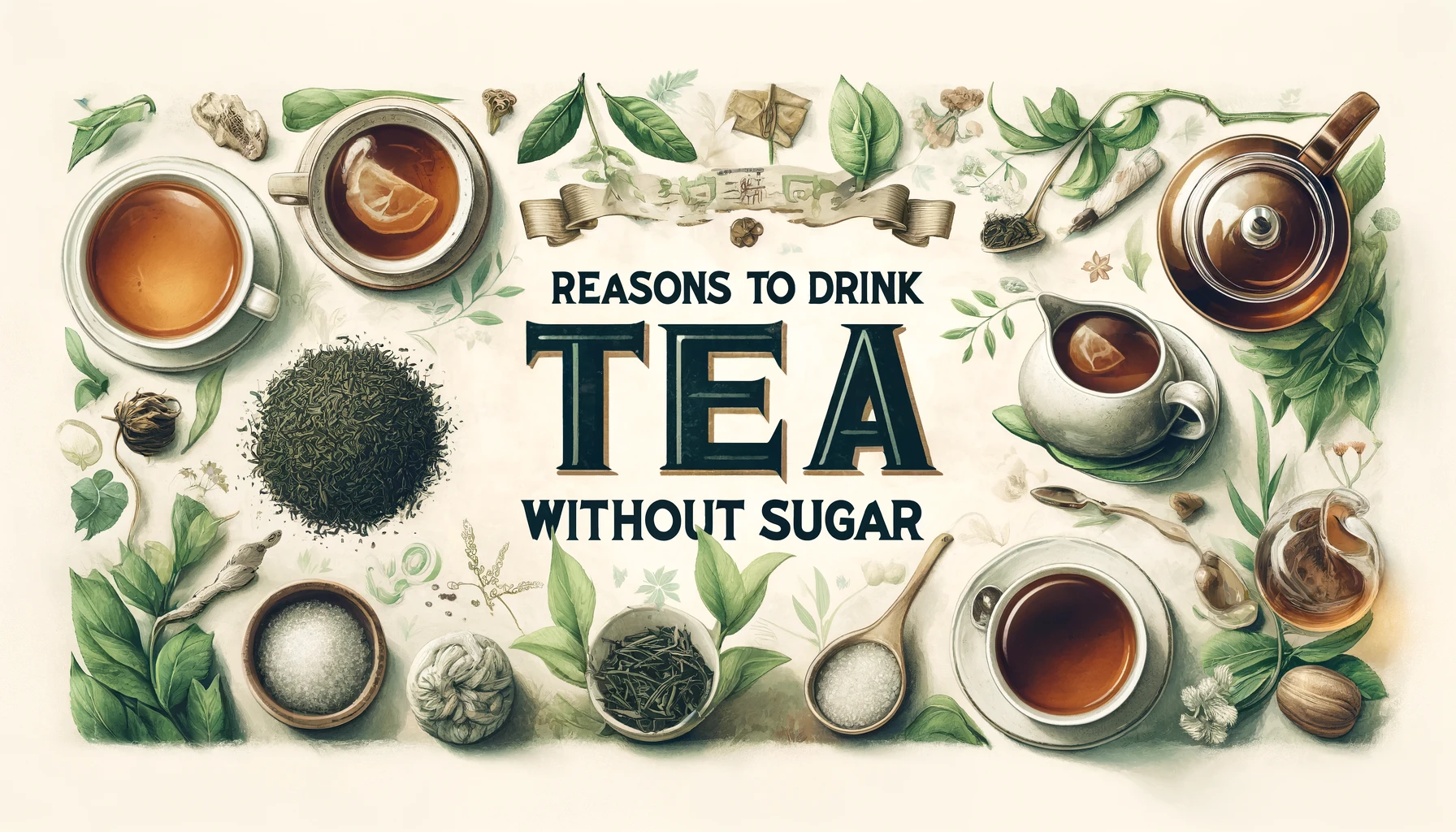
Nowadays, many people are trying to eat healthier and more natural foods to feel physically and mentally better. One popular choice is drinking tea, which is something people all over the world have enjoyed for a long time. Some might wonder, “Can you add sugar to green tea?” Yes, you can. But if you drink tea without sugar, it’s better for your health and lets you enjoy the taste. Let’s talk about why choosing tea without sugar is more than just a preference; it’s a change in how you live for the better.
Tea Is A Naturally Healthy Treat
Green tea is famous for being really good for your health. It’s full of antioxidants and stuff that can make you healthier in lots of ways. This includes making your brain work better, helping you lose weight, lowering your chances of getting cancer, and a lot more. If you put sugar in your green tea, you might not get all these health perks because sugar has lots of calories that can make you gain weight, raise your sugar levels in the blood, and increase your risk of heart problems. Drinking green tea without any sweet stuff in it lets you enjoy all its health benefits to the fullest.
Avoid The Crash
Sugar may provide a temporary energy boost, but soon after, you’ll likely feel more tired than before. This cycle of highs and lows can disrupt your natural energy levels and mood throughout the day. On the other hand, unsweetened tea, especially varieties like green or black tea that contain natural caffeine, can offer a more stable and gentle boost in energy.
Save Money with Multiple Infusions
Good green tea can be used more than once to make tea, and you might notice different and interesting flavors each time you do. But, if you put sugar in your tea, it can hide these special tastes and might stop you from trying to make tea a few times with the same leaves, which means you need to get the most out of your tea leaves. Drinking your green tea without sugar lets you enjoy finding these new flavors every time you make it, giving you more bang for your buck with every batch of leaves.
Simplify the Brewing Process
Brewing tea is an art form that celebrates simplicity and mindfulness. You just heat water, measure out some tea, and wait quietly for it to be ready. Putting sugar or other sweet things in your tea makes this process more complicated and takes away from enjoying the tea for what it is. By sticking to the basics, you can get into the tea-making process, making the whole thing more peaceful and fun.
Taste Your Tea
Green tea has many different flavors, from fresh grassy to light and flowery ones. If you put sugar in it, these nice tastes can get lost because it is too strong.
Golden Rules to Make Tea Sweeter Without Sugar

Learning how to make green tea sweet without using sugar is a special skill. Understanding how to sweeten green tea effectively can enhance your tea experience, making it more enjoyable and healthful. Similarly, enjoying green tea without sugar doesn’t mean you have to compromise on taste. By selecting the right tea leaves and employing specific brewing techniques, you can enjoy a naturally sweeter, refreshing and satisfying cup. Below, we explore some golden rules to achieve that perfect balance of sweetness in your tea naturally
Select a Tea from a Sweet Cultivar
Not all green teas taste the same. Some kinds are naturally sweeter than others. For example, a type of tea called Jin Xuan has a naturally sweet taste. If you choose a tea that’s already a bit sweet, you won’t need to add sugar.
Go For a Shaded Tea
Some green teas are grown in the shade before they are picked. This special treatment makes the tea leaves sweeter. Gyokuro and Kabusecha are two types of shaded green teas. Drinking these can give you a sweet taste, even without sugar.
Brew the Tea at a Lower Temperature
If you use boiling hot water to make your green tea, it can taste unpleasant. But if you use cooler water, your tea can taste sweeter. Try using water that is not too hot, about 175°F to 185°F, when you make your green tea.
Cold Brewing
Another way to get a sweet taste is to make your tea with cold water. This means you put the tea leaves in cold water and leave it in the fridge for a few hours or overnight. This slow brewing makes the tea less bitter and brings a sweet flavor.
Best Food Pairing To Sweeten Tea Naturally
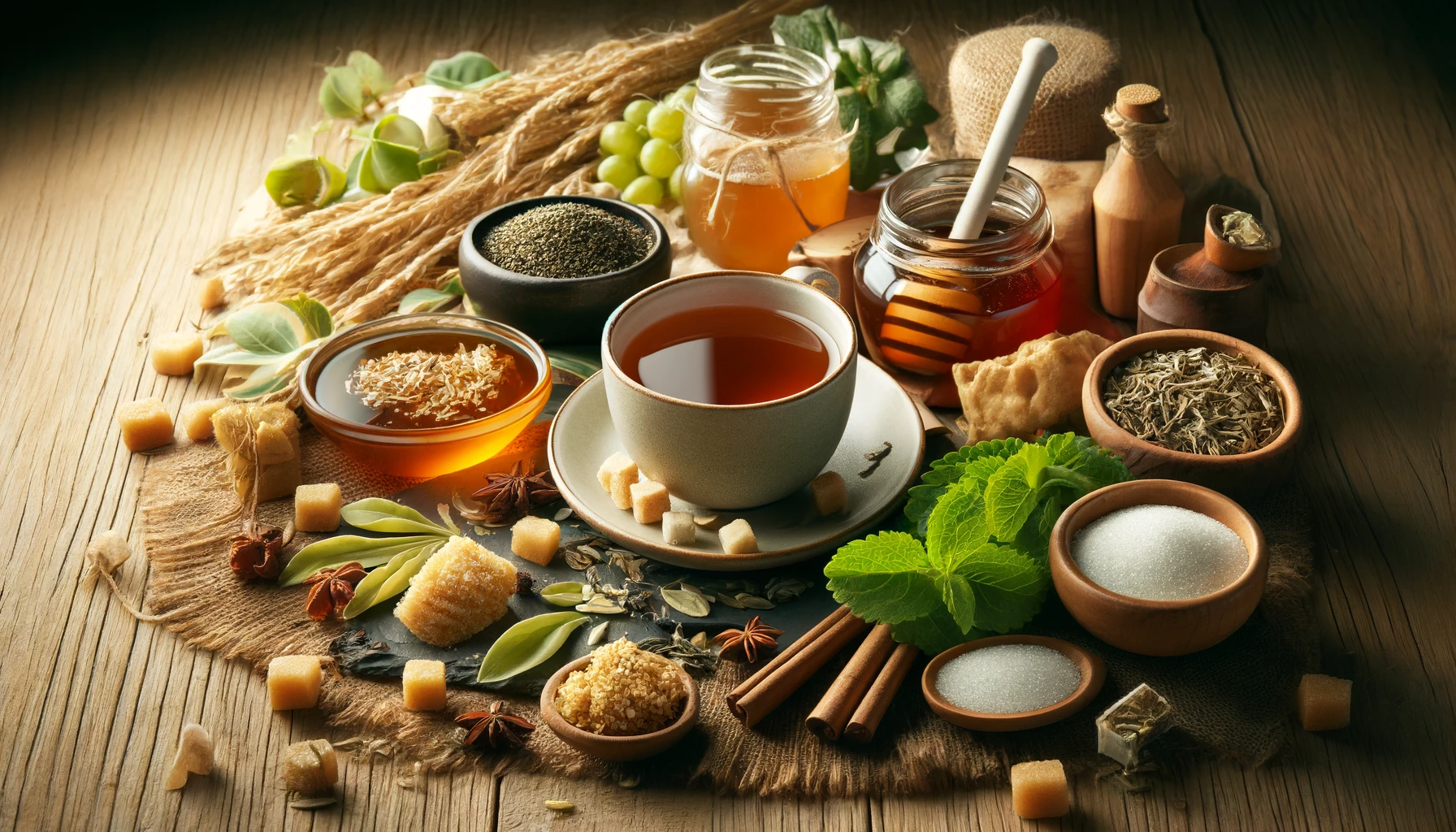
Some people reach for sugar or honey, and others might wonder about the best artificial sweetener for tea. However, pairing your tea with the right food is a natural way to add sweetness to your tea without using any sweeteners. Let’s explore some traditional and delightful food pairings that can naturally sweeten your tea experience.
Mochi
Mochi is a soft, sticky snack from Japan. It’s made from a special kind of rice and is often filled with a sweet bean paste. Eating mochi with your tea makes every sip taste sweeter.
Osenbei
Osenbei, or Japanese rice crackers, are a crunchy snack in sweet and savoury varieties. Pairing a slightly sweet osenbei with your tea can enhance its overall taste, adding a pleasant sweetness that lingers with each sip.
Yokan
Yokan is a thick, jellied dessert made from red bean paste, agar, and sugar. Its smooth, sweet taste can complement the flavors of your tea, adding a natural sweetness without overwhelming your palate. Yokan comes in various flavors, such as chestnut, sweet potato, and green tea, allowing you to mix and match to find the perfect pairing.
Nama-Choco
Nama-Choco is like soft, creamy chocolate. It’s made with chocolate and cream, giving it a melt-in-your-mouth feel. This can make your tea time feel extra special and sweet.
Cheesecake
The creamy, tangy flavor of cheesecake can be an excellent match for tea, especially when served with a slightly sweetened crust. The richness of the cheesecake pairs wonderfully with the natural bitterness of tea.
Chocolate
Chocolate, with its rich and complex flavors, can be an ideal companion to tea. Dark chocolate, in particular, can bring out the depth and nuances in the flavour of tea, adding natural sweetness and enhancing the overall sensory experience.
Tsukemono
Tsukemono, or Japanese pickles, might not seem like a conventional choice for sweetening tea, but their unique, tangy sweetness can beautifully complement certain types of tea. Pickles made from fruits like umeboshi (pickled plum) can introduce a subtle sweetness and depth to your tea, especially when paired with green teas.
Frequently Asked Questions




